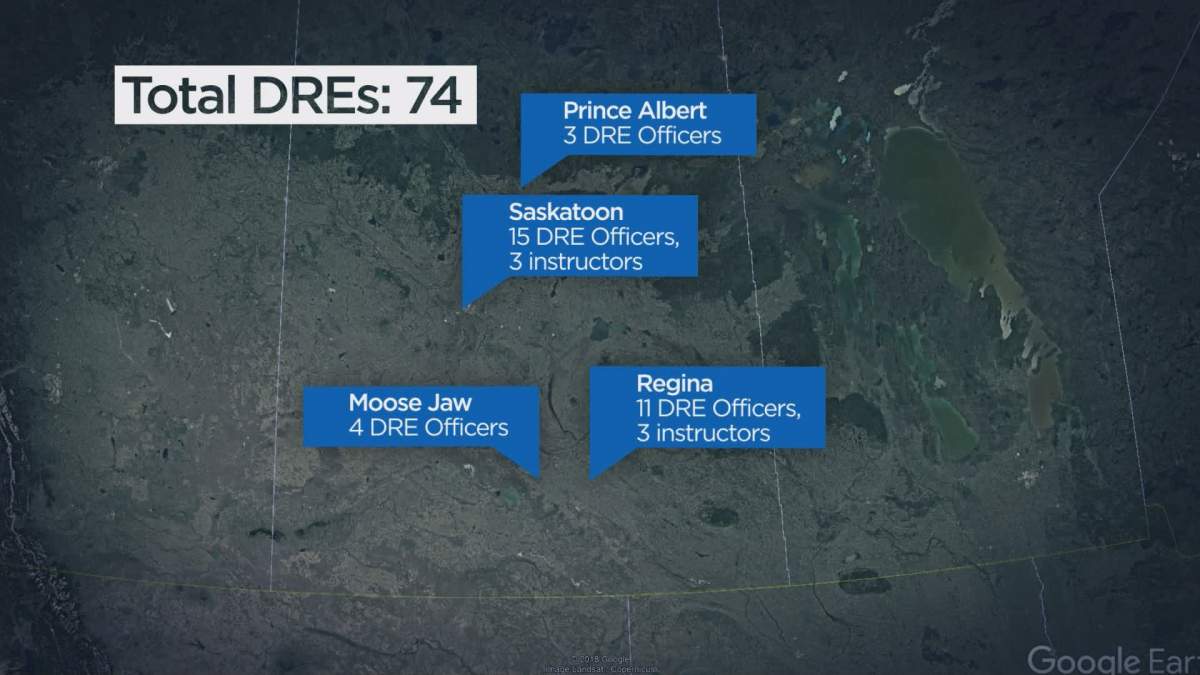Even when it’s legal to smoke marijuana on Oct. 17, it will still be illegal to drive high. That’s why SGI is putting Drug Recognition Evaluators (DRE) in the spotlight through the month of August.

“To put it simply, impaired is impaired,” said Penny McCune, COO of the SGI Auto Fund. “Any substance that alters your thinking will impact your ability to drive safely. If you smoke marijuana, you should not get behind the wheel until you’re sure the effects have fully worn off.”
SGI says that smoking cannabis increases your chances of being involved in a crash due to its effect on judgment, reaction time, motor coordination and ability to make decisions.
The insurance agency says mixing cannabis, alcohol and any other drug increases impairment even more.
If police pull over a driver they suspect is impaired by drugs or alcohol they can order a standard field sobriety test. If the officer has reasonable grounds to believe a driver is impaired by drugs, like cannabis, they can order the driver to submit to an evaluation conducted by a DRE.
“Drug Recognition Evaluators undergo extensive training and use a rigorous, scientific 12-step procedure in performing the evaluation,” said Cpl. Brian Ferguson, the provincial DRE training co-ordinator.
- Much of Canada faces extreme cold, heavy snow in latest winter blast
- 3 in 10 Albertans would vote for independence — but only half committed to separating: poll
- Pimicikamak Cree Nation to evacuate 79 more homes after military assessment
- China’s envoy says Beijing, Ottawa ‘eye to eye’ on supporting Greenland
“The evaluation must show impairment, signs and symptoms consistent with one or more drug categories, and the evaluator’s findings must be supported by the toxicology.”

Get breaking National news
The DRE course is an intensive three week process. The first two weeks involve classroom sessions in Regina for Saskatchewan-based officers. The last week, which includes a dozen highly scrutinized tests, is held at an International Association of Chiefs of Police certified institution.
“It’s very thorough because the officer has to be able to articulate properly to the court and to everybody that what they saw, and what they’ve seen gives them that opinion that that person’s ability to operate a motor vehicle is impaired by a specific drug category,” Ferguson explained.
“They have to go through and know a volume of information around each and every one of the drug categories, and as well what there onset duration are, what’s exactly going to be seen in that particular person, the general indicators of it, and be able to say this person’s ability to drive is impaired.”
With the amount of training and expertise that goes into achieving DRE certification their opinions are admissible as evidence in court. These officers must have their training re-certified every two years.
There are currently 74 DRE-certified officers in the province. The Saskatoon Police Service employs 18 DREs, including three instructors, and wants to increase that number to 36 as resources allow.
The Regina Police Service has 11 DRE officers and three instructors. In February, Chief Evan Bray said he wants to gradually increase the amount of Regina DREs to 40.
There are two classes of officers scheduled for DRE training in the province. Assuming they all pass, Saskatchewan will have 40 more DREs by the end of 2019.
Impaired drivers in Saskatchewan can face immediate license suspensions and roadside vehicle seizure. If convicted penalties can range from steep fines to jail time.
Dräger DrugTest 5000
As published in the Canada Gazette, July 19, 2018, the Dräger DrugTest 5000 will be the oral fluid sample test used by police in the field to test for the prescience of THC in saliva. Ferguson said that instructors and officers still need to be trained on the device before it enters the field.
“It’s going to be yet another tool, but it’s not the only one that we have, but it is another tool we can use to look for drug-impaired drivers,” Ferguson said.
He added that these tests only detect the prescience of a drug, and don’t indicate impairment. This means the use of DREs will still be necessary.









Comments